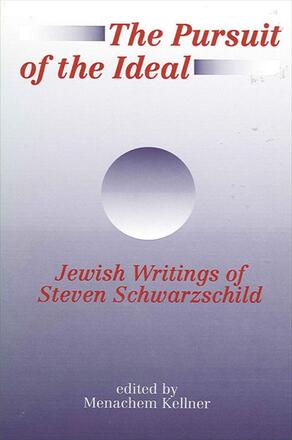
The Pursuit of the Ideal
Jewish Writings of Steven Schwarzschild
Alternative formats available from:
Description
Steven Schwarzschild—rabbi, socialist, pacifist, theologian, and philosopher—is both the last of the major medieval Jewish philosophers and the most modern. He is in the tradition of the Jewish thinking that began with Sa'adia Gaon and reached its highest expression in Maimonides. These thinkers believed that Judaism must confront some systematic view of the universe. Sa'adia did this with Kalam, ibn Gabirol with Neo-Platonism, and Maimonides with Aristotelianism. Schwarzschild does it with Neo-Kantianism. From this confrontation, Schwarzschild derives important insights into the nature and structure of contemporary Judaism and Jewish existence in the post-modern world.
Menachem Kellner brings together thirteen of Schwarzschild's Jewish (as opposed to straightforwardly philosophical) writings. Included are important discussions of messianism, death of God theology, ethics, aesthetics, and politics. The common concerns underlying these essays are Neo-Kantian idealism and messianism. In an afterword written especially for this book, Schwarzschild shows that these two foci are really one.
In an introductory essay, Menachem Kellner explores the philosophic underpinning of Schwarzschild's non-Marxist socialism, pacifism, and messianism; and of his critiques of Christianity, political conservatism, and Zionism.
Menachem Kellner is Professor in the Department of Jewish Thought at the University of Haifa in Israel.